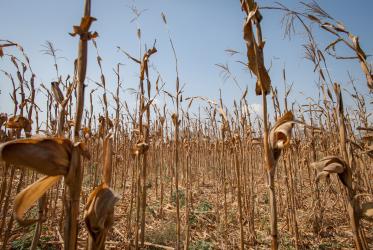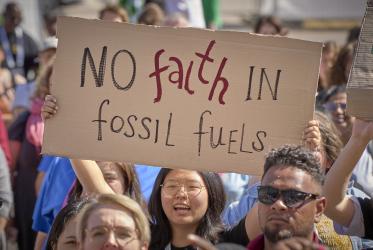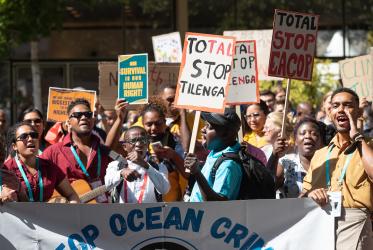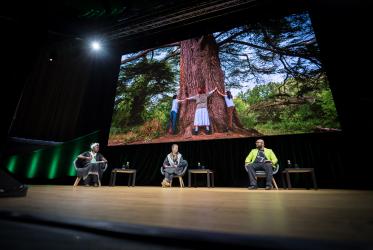Worries, like weeds, seem to thrive. The more you feed them, the more they grow. In Matthew 6, Jesus tells us not to worry about food, drink, clothing, or even the next day. He illustrates with magnificent images. The carefree lilies blooming in the field. And then there are the birds that fly about, singing in the trees. You could be jealous, for they worry about nothing. They are carefree, even though their lives are transitory and threatened.
People are creatures, too. We live in interrelationship with what surrounds us, just like the birds and flowers. Western philosophy has tried to take us out of this relationship, to separate creation from her crown, but Christianity resists this. Even in our first stories of origins—Genesis—we are called by God into deep relationship with all that is created.
Already the first humans realised that this is not easy, but we cannot live in any other way.
This is what Jesus wanted to tell us. For this message he crosses the whole country, and for this he needs companions—fellow pilgrims on the way!
From these ancient days, our life and faith situation has changed. We no longer live wandering, we need more than a walking stick and sandals. We rent and buy homes. We hike with a cell phone in our pocket. Our question today, then, is, “How do I in the midst of my daily life and the ecological threat journey with Jesus, my faith figure?
The answer is: By taking the right steps. Pilgrimage means praying with your feet. In recent weeks, many have taken such steps across Europe. From the tip of Norway, to Hungary, Italy, France, and more, the churches of Europe are taking up the call to walk with Jesus. We reflect on the pilgrimage so far, and to continue preparations for the United Nations Climate Change Conference in Paris in December.
In Europe, we look at ourselves as owners, rather than tenants of Creation. We must ask ourselves, what are the fruits of my life if I would live as though I were a tenant? Anyone expecting an answer looks best to Christ. He resisted ownership and lived his life for others.
We depend on this Earth, but take more than it can give. Farmlands dry out, tropical forests razed, island nations disappear. These changes call us to responsibility. Toward each other, toward future generations, toward Creation.
We need to go back and take our modest place. We must bear witness and live in solidarity with the poor, the most vulnerable fellow humans. Then also our way of life must change. Individually and corporately. European churches are indispensable in spreading this message, and living this new way of life.
We must speak together and stay true to the Gospel message.
Through the European contribution to the Pilgrimage of Justice and Peace, we are calling political and social leaders, and on all people of goodwill, to be guardians of creation and to find a new way of being.
First we must listen. Listen to the poor and vulnerable, those who are most affected by climate change. We must also listen to the voices speaking up, even when threatened with death.
The faithful lead the way. We must trust the indigenous people of Brazil, who protest deforestation and the construction of massive hydroelectric dams. We must trust Nigerians who stand against oil companies and rampant pollution. We must trust the Dutch people as their homes are damaged by onshore gas drilling.
Above all we must trust God and walk humbly in the pilgrimage that Jesus first walked those two thousand years ago. In it is through these steps, these prayers, that we will realise what is most important in our lives. Here we will see that when it comes to journeying with God, justice, the preservation of creation, and truth will always prevail.





